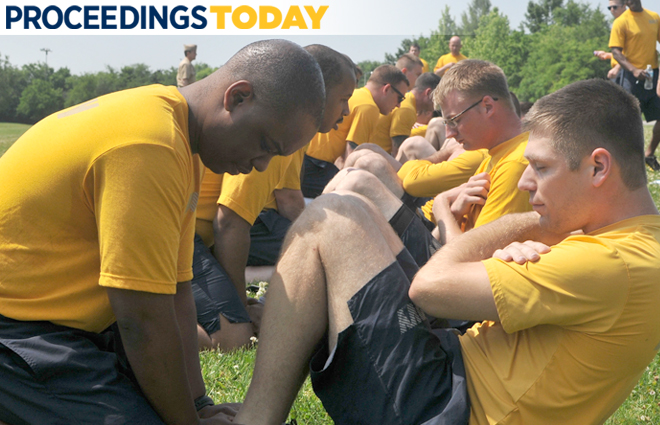
EDITOR’S NOTE: This is a part two of a ten-part series on behaviors that Vice Admiral Konetzni learned over his years of service and believes not only apply to successful individuals but also define superb organizations. Part I dealt with self-image.
All ten behaviors I will address provide people the energy to overcome obstacles. Self-motivation and the inspiration to energize people, come not from pushing them but by:
· Satisfying their need for achievement
· Providing a sense of belonging
· Providing recognition
· Developing self-esteem
· Permitting a feeling of control over their lives
· Permitting the ability to live up to their own standards
Every one of us is self-propelled in one way or another. Simply put, winners focus on the words of success: “I can, I will”; losers too often dwell on “I can’t!” Individuals and organizations do best when concentrating on success and not failure. This does not mean individuals or groups ignore risks, but it is important to realize that fear inhibits and desire is a magnet!
Fear can help us in extraordinary circumstances because it gets the adrenalin running, focuses our strength, and helps us defend ourselves in terrible circumstances. Under normal circumstances though, fear is a significant inhibitor to success.
Several years ago a dear friend of mine, Chris Michel (founder of military.com), noted, “If the penalty for failure far exceeds the reward for success in an organization, the organization will stand still and eventually fail.” I have seen this occur both in and out of government. When individuals or groups finds themselves able only to tread water they soon become a hindrance to those they serve.
The key here is to continually seek positive self-motivation for our organizations and ourselves. Some leadership virtues that can lead to self-motivation are:
· Keep the main thing, the main thing! Get your priorities straight and make ensure the team understands and stays focused on them.
· Be generous in giving credit. It costs nothing and buys allegiance.
· Tell everyone more than they need to know. Uninformed folks get mad. Nobody likes surprises. Explain every situation or proposal thoroughly, taking care to point out any detrimental aspects.
· Minimize formal meetings and committees.
· Make fun of your mistakes (but not the mistakes of others).
· Make work enjoyable for your people! Celebrate victories and put defeats behind you.
· Cut through the crap and get the job done!
· Delegate responsibility and trust your people. The more leaders on the team the stronger your leadership will be.
The opposite of these virtues—self-serving leaders, micromanagers, and demeaning personalities—foster a corrosive work environment. I remember vividly close to 40 years ago wishing I could perhaps trip and injure my ankle bad enough so I would not have to go to work on the submarine I served as the chief engineer. That experience constantly reminded me and drove me to discover behaviors to eliminate those rotten atmospheres.
My experience is that individuals and teams that promote genuine positive self-motivation and eliminate fear in the home and workplace will succeed. I have seen first-hand how being self-propelled toward common priorities allows otherwise average individuals and organizations (in the Navy and in business) to reach great heights and to provide a strong foundation for the next generation.
Vice Admiral Konetzni, known as “Big Al, the Sailor’s Pal,” served as the deputy and chief of staff to the Commander, Fleet Forces Command, before retiring from the Navy in 2004. His previous assignments included Commander, Submarine Force, U.S. Pacific Fleet. In 2016 he retired as vice president and general manager of Oceaneering International Inc.’s Advanced Technologies Marine Services Division.
More from Proceedings Today and Proceedings:


